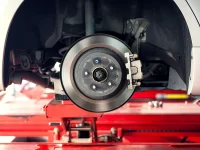Do I Need RV Extended Warranty?

Today, I’d like to talk about one of the most important and debated topics in the RV world and that’s extended warranties. Some are all for buying them, some are not. Here are a few of my thoughts.
Extended from what?
First off, I would point out to anyone buying an RV that if you want clear evidence that buying a RV is different than buying a sedan, Suv or light-duty pickup-up, take a look at the confusing world of RV warranties. RV warranties ae all over the place.
Some offer a structural warranty only, w while others offer a combination of a one or two-year limited warranty, and longer structural warranty.
Also, there is a matter of a keyword, which is included and exclusions.
Both with the original factory as well as extended warranties, some warranties have a list of repairs with are included with the warranty, (called inclusion warranties,) while others list items that are excluded from the warranty and everything else is covered.
My advice is to be wary of inclusion policies and stick only with those that are exclusive.
Another keyword that comes up, whether in original or extended market warrantaties is the words “consequential damage.” If a minor part failed such as a gasket that was excluded from coverage, and the result of that gasket failing is a major repair costing $1,000 to $4,000, the item may not be covered because of the exclusion of the gasket.
Are you confused yet? I don’t blame you. While it makes sense to buy an extended warranty due to the fact that the average repairs on an RV counting parts around $300, you want to make sure that extended warranty is worth the paper it’s printed on.
Extended warranties are big money-makers for salespeople
To begin with, you should know that extended warranties are big money-makers for dealers and salespeople. But do you know how to evaluate an extended warranty?
The first thing I ask people to look at is who is really backing the warranty? Unless you plan on taking your $100,000 RV no more than 20 miles from the dealership, then you’ll want to know exactly where you can take your RV for repairs.
Some extended warranties are great, and you can pretty much take your RV to any place that is an authorized repair shop. Whi le others are quite restrictive, and you may be out of pocket entirely for an emergency repair in the middle of Wyoming, where the closes authorized repair shop is 200 miles away,
Realize too, that an extended warranty is not a towing insurance plan. You may have to tow for experiences like a blow-out, but nobody is going to tow you one or two hundred miles to get to the dealership.
Another thing I see is individuals buying an extended warranty that has not checked whether they are really covered or not. Believe it or not, some extended warranties charge a surcharge if you are a full-time RVer.
Another thing I find is that many RVers don’t really understand the pre-authorization procedure for their warranty. You can’t just pull in your RV at a dealership and say, “work on it, I’m covered by a warranty. Most extended warranties require you to call and 800 number and get pre-approval for the work.
Finally, have enough set aside for repairs not covered. For example, if you are getting involved in replacing rv roof membrane, the materials alone will cost you nearly $300 per linear foot. Often such repairs are due to collisions with high obstructions and will not be covered under the warranty. Never the less, you’ll need to get it done ASAP, so be prepared.







